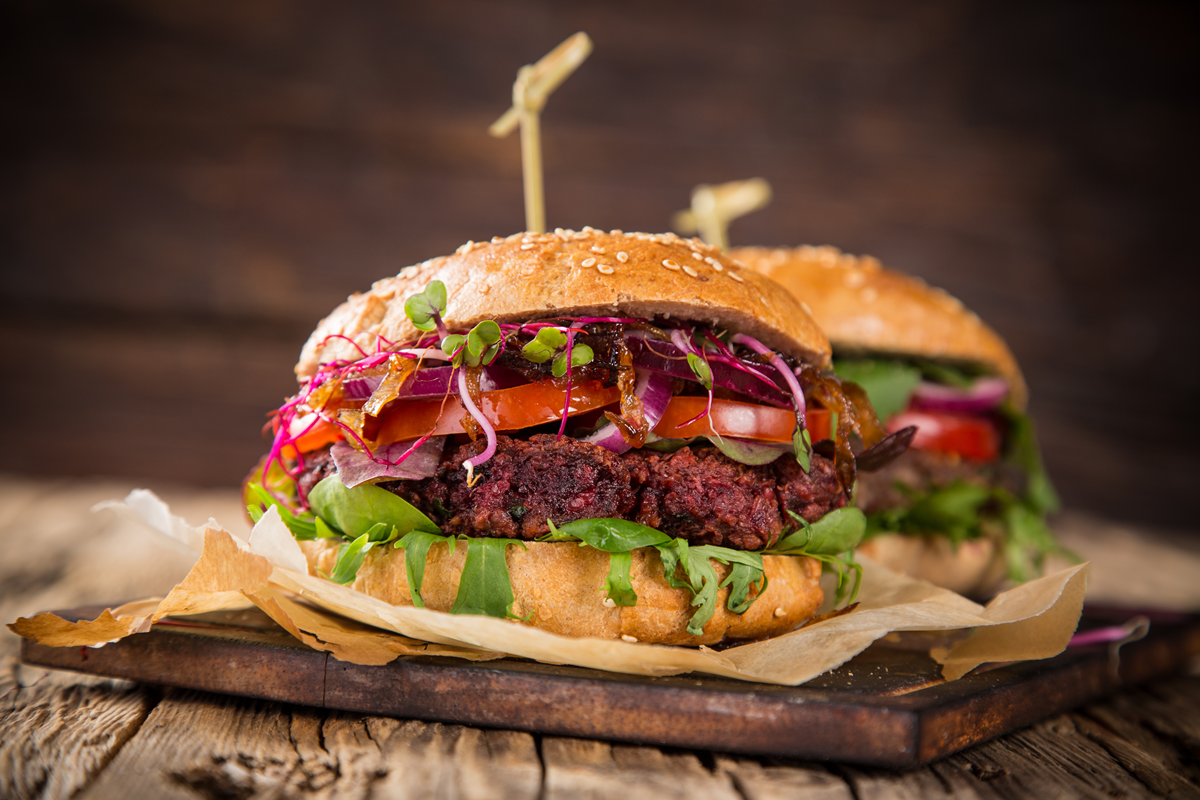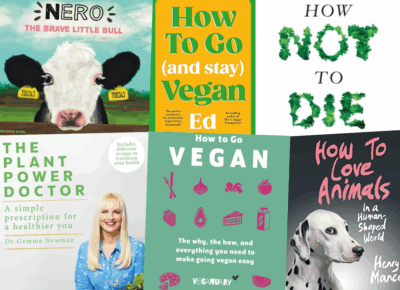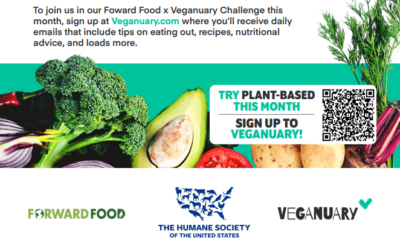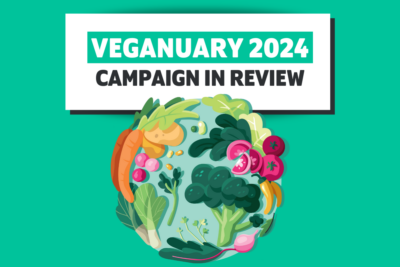In recent years, ultra-processed foods (UPFs) have been a topic of intense scrutiny and debate, with plant-based meat and dairy alternatives being singled out by some segments of the media and social media influencers.
The lack of nuance in these conversations has led to unfounded fears and myths about consuming plant-based meat and dairy substitutes or transitioning to a plant-based diet. In this article, we aim to explore the issue in greater depth and address common questions surrounding UPFs and plant-based diets.

What are processed foods?
Any food product that has undergone some degree of processing falls under the term ‘processed food,’ such as freezing, canning, baking, or the addition of preservatives and flavors. The term encompasses a wide range of foods, from minimally processed items like frozen fruit and vegetables to heavily processed products such as crisps and fizzy drinks.
Other common examples of processed foods include:
- Canned beans and vegetables
- Frozen and ready meals
- Bread and baked goods
- Snack foods like chips, cakes, biscuits and chocolate
- Some meats such as bacon, sausages, and salami
What are ultra-processed foods?
There is no universally accepted definition of UPFs, but generally speaking, a food is considered ultra-processed if it contains ingredients most people wouldn’t recognize or have in their kitchen at home. The most commonly used definition comes from the NOVA system1, which classifies foods based on their degree of processing.
NOVA classifies foods into four groups:
- Unprocessed and minimally processed – Includes fruit, vegetables, grains, legumes, herbs, nuts, meat, seafood, eggs and milk. The processing doesn’t significantly alter the food, e.g. freezing, chilling, boiling, or chopping.
- Processed culinary ingredients – Includes oils, butter, lard, honey, sugar, and salt. These are substances derived from group 1 foods but that aren’t consumed by themselves.
- Processed foods – Includes canned vegetables, salted nuts, salted, dried, cured, or smoked meat, canned fish, cheese, and fruit in syrup. These products tend to have added salt, oil, and sugar, and the processes are designed to enhance the taste and smell or make them last longer.
- Ultra-processed foods – Includes ready-to-eat products such as breads and buns, pastries, cakes, chocolate, and biscuits, as well as cereals, energy drinks, microwave and ready meals, pies, pasta, sausages, burgers, instant soups, and noodles.
NOVA’s full definition of UPFs is lengthy, but common tell-tale signs of UPFs are the presence of additives, flavor enhancers, colors, emulsifiers, sweeteners, and thickeners. The methods of processing are considered just as problematic as the ingredients themselves.
What is the problem with ultra-processed foods?
There are growing concerns around the excessive consumption of UPFs because they have been linked to a surge in obesity, increased risk of cardiovascular disease, hypertension, and certain cancers, as well as negative effects on gut health.2 They have also received criticism for being heavily marketed and encouraging overconsumption. In the US, it is estimated that UPFs make up more than 50% of our energy intake.3
The attention UPFs have received has led to a widespread misconception that any form of processing automatically makes food ‘bad’ for us, which is not necessarily the case. It’s important to recognize that virtually all foods we buy from supermarkets undergo some form of processing, and certain processes can extend a food’s shelf life, ensure it is safe for consumption, or even improve its nutritional profile.
NOVA’s definition of UPFs doesn’t necessarily tell the whole story about the nutritional value of a food product and some experts have challenged these classifications.4,5
In fact, a recent study found that some foods which are considered UPFs, such as bread and cereal, can be beneficial to our health when part of a balanced diet due to their high fiber content.6 The US Dietary Guidelines also recommends foods which would fall under NOVA’s categories of processed or ultra-processed, such as low-sodium black beans and low-fat yogurts.7
How do vegan alternatives compare to their non-vegan counterparts?
Although plant-based products have been singled out by some critics of UPFs, the consumption of UPFs is not exclusive to people who eat a plant-based diet. Plant-based meat and dairy alternatives haven’t been consistently analyzed in major studies on the impact of UPFs, and more research is needed to determine the long-term health effects of regularly consuming these foods.
However, there is plenty of evidence linking the consumption of processed meat to certain cancers8 and many non-vegan foods like meat and cheese are high in saturated fat, which increases the risk of heart disease.
Plant-based meat and dairy alternatives vary widely, as there are hundreds of different products and brands, and not all of them use the same levels of processing. For example, some plant milks contain added sugars, additives, and emulsifiers, but others don’t. Plant-based foods may fit into different NOVA categories, just as non-vegan foods do, so generalizing all plant-based foods doesn’t reflect the nutritional value of different products.
Another criticism of plant-based UPFs is that they cannot be nutritionally adequate because they have been processed. Some research has found that processed plant-based meat alternatives tend to be higher in fiber and lower in saturated fat than their non-vegan counterparts.9 A recent study also found that some plant-based burgers were higher in certain minerals than beef burgers, and although iron content was lower in the plant burgers, it was equally bioavailable.10
Should we stop using these products?
Of course, UPFs should not displace minimally processed foods or replace cooking healthy meals from scratch, but the term ‘processed’ itself is vague and may perpetuate negative bias towards certain foods – especially as some people depend on these foods due to allergies and food intolerances. Most people are time-poor and would find it difficult to cook from scratch most of the time, making the hyper-focus on UPFs very elitist.
Without preservatives, food waste would increase substantially as products would have a much shorter shelf life. This would lead to more carbon production as more food would need to be produced to cover the amount going to waste. We are also in the midst of a cost-of-living crisis, and avoiding UPFs entirely would stretch people’s limited budgets.
Plant-based products have a larger role to play in our food system too. Numerous studies have demonstrated that farming animals for food is detrimental to the environment and will not sustain a growing global population. A switch towards eating more plant-based foods is needed to combat the climate crisis and ensure global food security. Processed plant-based alternatives like sausages, burgers, nuggets, and non-dairy milk help people transition to a more environmentally friendly diet, not to mention sparing millions of animals from suffering.
The scrutiny of plant-based alternatives is often misguided and lacks nuance, and we should all aim to include more whole, plant foods in our diets. Our Official Veganuary Participant Surveys tell us that many people use processed plant-based alternatives regularly when they are moving towards a healthier vegan diet, as they are easy swaps for familiar foods.
However, as people experiment with plant-based eating, they often begin exploring new flavors, recipes, and whole foods like legumes and tofu, which gradually reduces their reliance on processed meat and dairy alternatives. Eventually, these products become an occasional indulgence or convenience option as opposed to an everyday staple.
Research has consistently shown that a whole food, plant-based diet is high in fiber and antioxidants, as well as being low in saturated fat. Plant-based diets have been found to lower the risk of type 2 diabetes, and in some cases have even reversed the disease.11
Eating plant-based has also been linked to lower cholesterol12 and blood pressure,13 reducing the risk of heart disease. Following a plant-based diet can even reduce the risk of developing bowel cancer.14 When plant-based UPFs are sensationalized by the media and social media influencers, the benefits of a healthy plant-based diet are all too often left out of the conversation.
References:
1. Monteiro, C., Cannon, G., Lawrence, M., Laura Da Costa Louzada, M. and Machado, P. (2019). Ultra-processed foods, diet quality, and health using the NOVA classification system. [online] Available at: https://www.fao.org/.
2. UNC Global Food Research Program (2021). Ultra-processed foods: A global threat to public health. [online] plantbasedhealthprofessionals.com. Available at: https://plantbasedhealthprofessionals.com/ [Accessed 8 Apr. 2024].
3. Martínez Steele E, Baraldi LG, Louzada MLDC, et al Ultra-processed foods and added sugars in the US diet: evidence from a nationally representative cross-sectional study BMJ Open 2016;6:e009892. doi: 10.1136/bmjopen-2015-009892 https://bmjopen.bmj.com/
4. British Nutrition Foundation (2023). The concept of ultra-processed foods (UPF). [online] nutrition.org. British Nutrition Foundation. Available at: https://www.nutrition.org.uk/ [Accessed 8 Apr. 2024].
5. Braesco, V., Souchon, I., Sauvant, P., Haurogné, T., Maillot, M., Féart, C. and Darmon, N. (2022). Ultra-processed foods: how functional is the NOVA system? European Journal of Clinical Nutrition, 76. doi: https://doi.org/
6. Cordova, R., Viallon, V., Fontvieille, E., Peruchet-Noray, L., Jansana, A. and Wagner, K.-H. (2023). Consumption of ultra-processed foods and risk of multimorbidity of cancer and cardiometabolic diseases: a multinational cohort study. [online] thelancet.com. Available at: https://www.thelancet.com/ [Accessed 8 Apr. 2024].
7. U.S. Department of Agriculture and U.S. Department of Health and Human Services. Dietary Guidelines for Americans, 2020-2025. 9th Edition. December 2020. Available at DietaryGuidelines.gov.
8. Cancer Research UK (2019). Does eating processed and red meat cause cancer? [online] Cancer Research UK. Available at: https://www.cancerresearchuk.org/ [Accessed 8 Apr. 2024].
9. Alessandrini, R., Brown, M.K., Pombo-Rodrigues, S., Bhageerutty, S., He, F.J. and MacGregor, G.A. (2021). Nutritional Quality of Plant-Based Meat Products Available in the UK: A Cross-Sectional Survey. Nutrients, 13(12), p.4225. doi:https://doi.org/.
10. Latunde-Dada, G.O., Naroa Kajarabille, Rose, S., Arafsha, S.M., Kose, T., Aslam, M.F., Hall, W.L. and Sharp, P. (2023). Content and Availability of Minerals in Plant-Based Burgers Compared with a Meat Burger. Nutrients, 15(12), pp.2732–2732. doi:https://doi.org/.
11. Physicians Committee for Responsible Medicine (2019). Diabetes. [online] Physicians Committee for Responsible Medicine. Available at: https://www.pcrm.org/ [Accessed 8 Apr. 2024].
12. Physicians Committee for Responsible Medicine (2000). Lowering Cholesterol with a Plant-Based Diet. [online] Physicians Committee for Responsible Medicine. Available at: https://www.pcrm.org/ [Accessed 8 Apr. 2024].
13. Physicians Committee for Responsible Medicine (2014). High Blood Pressure. [online] Physicians Committee for Responsible Medicine. Available at: https://www.pcrm.org/ Accessed 8 Apr. 2024].
14. Bowel Cancer UK (2022). Plant-based diet may reduce bowel cancer risk. [online] Bowel Cancer UK. Available at: https://www.bowelcanceruk.org.uk/ [Accessed 8 Apr. 2024].










